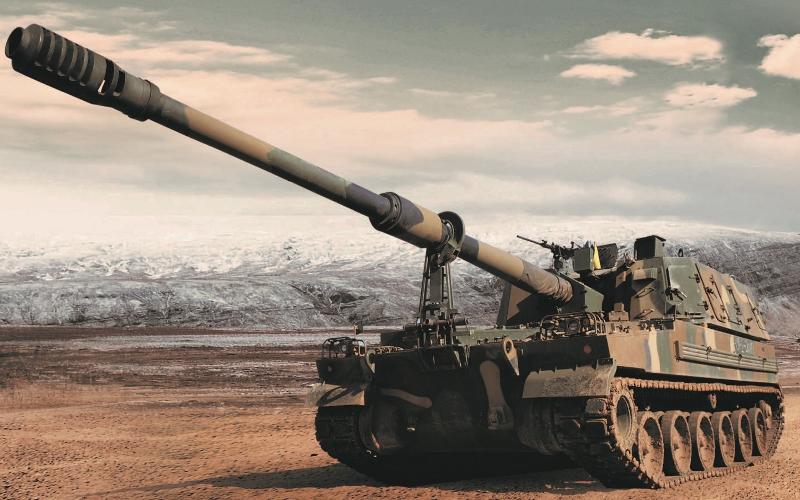
Korea from 2020-24 ranked second in weapons exports to NATO member states after the U.S. Shown is the domestically developed K9 self-propelled howitzer. (Hanwha Group's official website)
By Kim Seon Ah
The country's weapons exports to NATO member states over the past five years are second only to those of the U.S.
Thus Korea is an emerging power in the global weapons sector due to swift delivery and competitive pricing.
The British weekly Economist on Aug. 31 said this in quoting a report in March by the Sweden-based Stockholm International Peace Research Institute, "Trends in International Arms Transfers, 2024." Korea tied with France from 2020-24 for second place in arms exports to NATO member countries with 6.5% each.
The U.S., the world's top arms exporter, was No. 1 on the list with 64%, while Korea ranked 10th and saw its share rise from 2.1% to 2.2%.
By weapon, Korea was the world's biggest supplier of tanks and artillery, surpassing the U.S., and placed third in fighter jets after the U.S. and France. The Economist added that Korea and Turkiye (Turkey) are emerging as arms exporters while Russia and Europe are declining in the sector.
Russia has prioritized reconstruction of its military due to equipment losses from the war in Ukraine, and Europe has not fully recovered its output capacity since a reduction after the end of the Cold War.
Korea, however, has used its private-public cooperation and price competitiveness to conclude deals worth trillions of KRW with Poland for K2 tanks and K9 self-propelled howitzers.
The Economist also forecast Korea's naval (warships) and aviation (fighter jets) exports to grow. A consortium of Hanwha Ocean and HD Hyundai Consortium is competing with a German company as the finalists for a submarine project in Canada, and exports of Korea's KF-21 fighter jets are possible to Eastern Europe, the Gulf region and South Asia.
Though indicating growing competition, the weekly said Korea's defense exports in 2022 broke an estimated USD 17.3 billion (KRW 24 trillion) and are expected this year to reach USD 23 billion (KRW 32 trillion).
sofiakim218@korea.kr